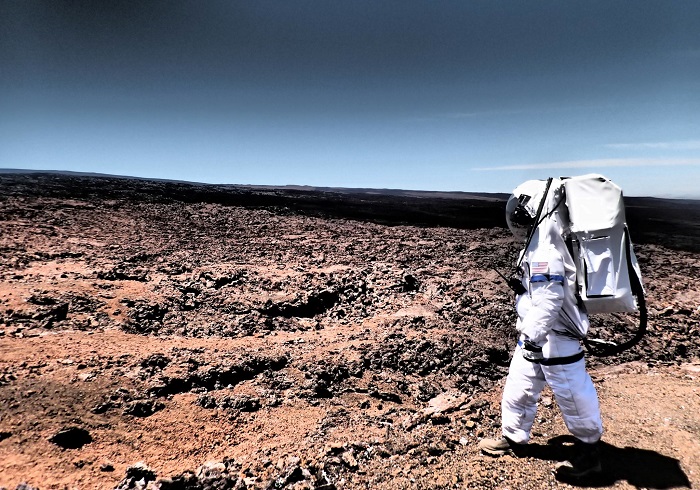As everyone from SpaceX to Boeing to the White House discusses the idea of sending humans to Mars, not part of these conversations is the potential damage to the astronaut’s personal health; specifically, how these long-term space missions can damage the brain.

A recent study published in Scientific Reports looked into the matter of prolonged exposure to space radiation and found that it could eventually “cook” the astronaut’s brain cells, causing chronic dementia, memory loss, and anxiety. Altogether, it could influence the person’s thinking, decision-making, and ability to multi-task — necessary cognitive functions when trying to survive on a foreign planet.
The results of the study come from experiments in rodents, as conducted by radiation oncologist Charles Limoli and his colleagues at the University of California (Irvine). In their laboratory, the team bombarded mice and rats with low doses of ionized oxygen or titanium — charged particles with similar energies to that of the cosmic rays that pass through the shielding on spacecraft. Limoli explained that the dosage levels he and his team administered were measured to be equivalent to that which astronauts would be exposed to during a three-year round-trip mission to Mars.
The prefrontal cortex was specifically studied, as it’s the region in the brain linked to the aforementioned cognitive functions — decision making, memory, and function. Post exposure, the team noted significant damage in this area, along with much greater inflammation. Damage persisted as long as six months after the exposure sessions took place.
“Our tests ask animal to recognize and respond to novelty,” Limoli says. “Smart animals recognize novelty. The affected animals show stress and don’t explore.”
The radiation wound up damaging the small branches on neurons which help transmit electric signals to the nerve cell body. This led to a loss in memory as well as an inability to learn.
The best example scientists have in terms of how a human reacts to long-term radiation exposure is astronaut Scott Kelly, who just concluded a 340-day-stay aboard the International Space Station. But NASA is aware that astronauts en route to Mars would experience a whole different kind of radiation exposure than that which Kelly experienced; hence its $9 million investment into Limori’s study, filed under the Agency’s “Human Research Program”.
Worth noting is that last year, Limori conducted a six-week study, and it too showed similar results. This year, his team ran 12- and 24-week programs.
“What’s most surprising is how persistent some of the changes to the structure of neurons are,” Limoli says. He added that his group has unpublished data showing that these effects can last for a year.
Presently, NASA is looking into ways to lessen radiation exposure, including thicker shielding, new radiation-blocking materials, protective suits, and creating magnetic fields for the purpose of recreating Earth’s natural shield. On the other side, Limoli and his team are looking into developing drugs that could protect the brain’s circuitry.
Via IEEE Spectrum
Advertisement
Learn more about Electronic Products Magazine





